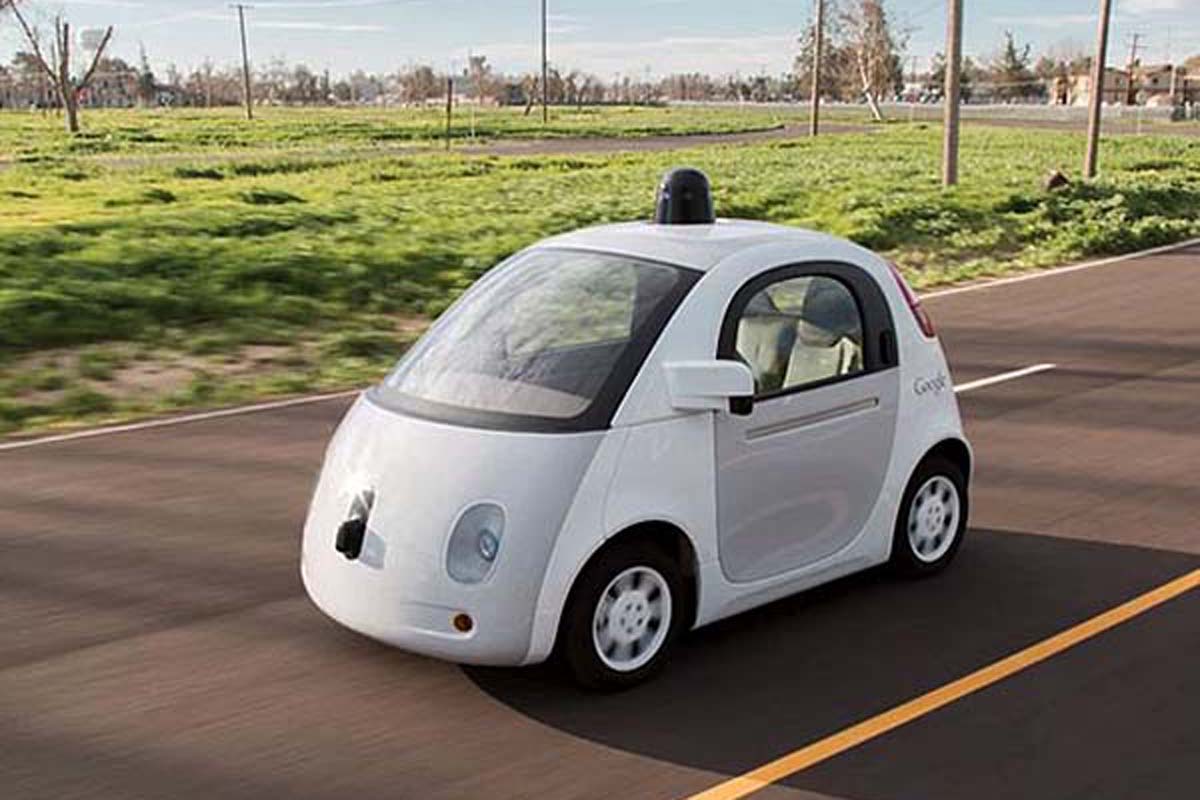
Police pulled over one of Google's self-driving cars on Thursday because of the speed at which it was traveling, but there was no traffic infraction.
The cartoonishly curvacious vehicle was driving 24 miles per hour in a 35 mph zone in Mountain View, California, where the company has its headquarters. It was pulled over after a police officer noticed traffic backing up behind it.
"As the officer approached the slow moving car he realized it was a Google autonomous vehicle," the Mountain View Police Department wrote in a blog post. "The officer stopped the car and made contact with the operators to learn more about how the car was choosing speeds along certain roadways and to educate the operators about impeding traffic per 22400(a) of the California Vehicle Code."
The auto and computing industries believe self-driving cars are the future. But developing the technology is only one step along the road. Drivers, legislators and engineers also will have to reckon with issues like car-crash ethical choices, insurance coverage and, as here, law enforcement. For traffic violations, Google has said the company itself should be responsible for tickets.
Prototypes of Google's self-driving bubble cars are not an uncommon sight on roads in Mountain View. But the company is not alone in experimenting with autonomous vehicles -- many automakers are currently researching their own self-driving vehicles. Toyota has said that it hopes to make self-driving cars commercially available by 2020, and MIT's Kevin Ashton, who divined the concept of network-connected objects known as the Internet of Things, this week predicted the vehicles will be commonplace by 2030.
Mountain View's balmy weather is easier on self-driving car sensors, which don't have to reckon with the complications of snow. A new self-driving car test track called Mcityin Ann Arbor, Michigan, is likely to have less clement conditions. On Friday, Ford revealed it has begun testing self-driving cars there.
Google's car wasn't breaking any laws when the officer pulled it over: the vehicles are allowed on roads where the speed limit is less than 35 mph. The Mountain View Police Department also said that it meets with Google regularly to ensure the vehicles are operating safely.
"We've capped the speed of our prototype vehicles at 25 mph for safety reasons," the company wrote in a Google+ post. "We want them to feel friendly and approachable, rather than zooming scarily through neighborhood streets." Google added that its self-driving cars have now driven 1.2 million miles without receiving a single ticket.
by Katie Collins, www.cnet.com
No comments:
Post a Comment